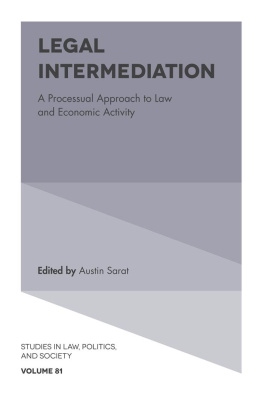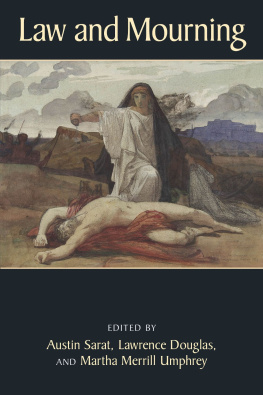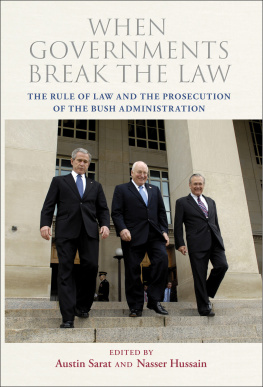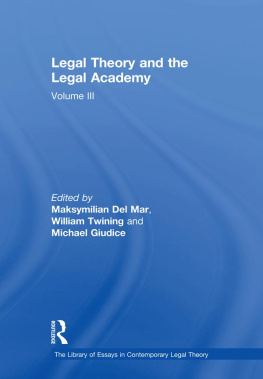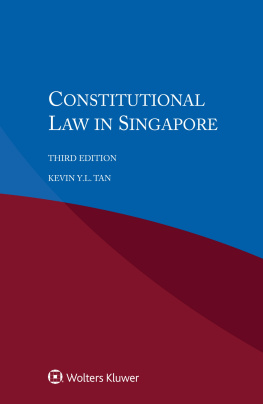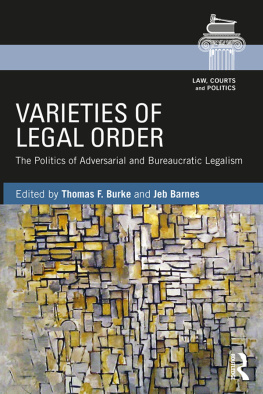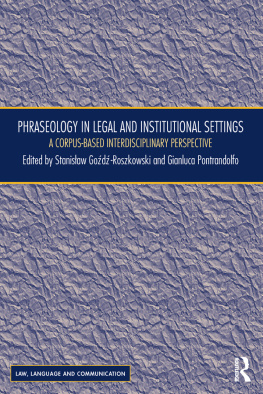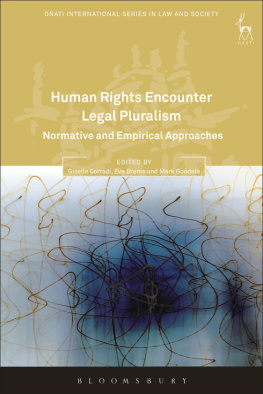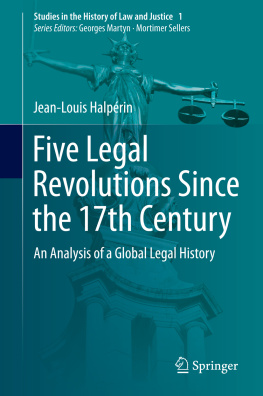STUDIES IN LAW, POLITICS,
AND SOCIETY
STUDIES IN LAW, POLITICS, AND SOCIETY
Series Editor: Austin Sarat
Previous Volumes:
Volumes 12: | Edited by Rita J. Simon |
Volume 3: | Edited by Steven Spitzer |
Volumes 49: | Edited by Steven Spitzer and Andrew S. Scull |
Volumes 1016: | Edited by Susan S. Sibey and Austin Sarat |
Volumes 1733: | Edited by Austin Sarat and Patricia Ewick |
Volumes 3477: | Edited by Austin Sarat |
Volume 78: | Edited by Livia Holden and Austin Sarat |
Volume 79: | Edited by Austin Sarat |
Volume 80: | Edited by Austin Sarat |
STUDIES IN LAW, POLITICS, AND SOCIETYVOLUME 81
LEGAL INTERMEDIATION: A PROCESSUAL APPROACH TO LAW AND ECONOMIC ACTIVITY
EDITED BY
AUSTIN SARAT
Department of Law, Jurisprudence and Social Thought, and Political Science, Amherst College, USA
SPECIAL ISSUE EDITORS
SEBASTIAN BILLOWS
Max Planck Institute for the Study of Societies, Germany
LISA BUCHTER
Northwestern University, USA and Sciences Po, France
JRME PLISSE
Sciences Po, France
Emerald Publishing Limited
Howard House, Wagon Lane, Bingley BD16 1WA, UK
First edition 2019
Copyright 2019 Emerald Publishing Limited
Reprints and permissions service
Contact:
No part of this book may be reproduced, stored in a retrieval system, transmitted in any form or by any means electronic, mechanical, photocopying, recording or otherwise without either the prior written permission of the publisher or a licence permitting restricted copying issued in the UK by The Copyright Licensing Agency and in the USA by The Copyright Clearance Center. Any opinions expressed in the chapters are those of the authors. Whilst Emerald makes every effort to ensure the quality and accuracy of its content, Emerald makes no representation implied or otherwise, as to the chapters suitability and application and disclaims any warranties, express or implied, to their use.
British Library Cataloguing in Publication Data
A catalogue record for this book is available from the British Library
ISBN: 978-1-83867-860-9 (Print)
ISBN: 978-1-83867-859-3 (Online)
ISBN: 978-1-83867-861-6 (EPub)
ISSN: 1059-4337 (Series)
CONTENTS
Sebastian Billows, Lisa Buchter and Jrme Plisse
Lisa Buchter
Camille Herlin-Giret and Alexis Spire
Fanny Vincent
Jrme Plisse
Alina Surubaru
Sebastian Billows
LIST OF CONTRIBUTORS
Sebastian Billows | Max Planck Institute for the Study of Societies, Germany |
Lisa Buchter | Emlyon Business School, France |
Camille Herlin-Giret | Centre dtudes et de recherches administratives, politiques et sociales (CERAPS), France. |
Jrme Plisse | Center for the Sociology of Organizations, CNRS, Sciences Po Paris, France |
Alexis Spire | Institut de recherche interdisciplinaire sur les enjeux sociaux (IRIS), France |
Alina Surubaru | Centre Emile Durkheim (CNRS), Universit de Bordeaux, France |
Fanny Vincent | Centre de recherche sur lexprience, lge et les populations au travail (CREAPT), France and Centre dtudes de lemploi et du travail - Conservatoire national des arts et mtiers (CNAM), France |
EDITORIAL BOARD
Gad Barzilai
Department of Political Science, Tel Aviv University, Israel
Paul Berman
Department of Law, George Washington University, USA
Roger Cotterrell
Department of Legal Theory, Queen Mary College, University of London, UK
Jennifer Culbert
Department of Political Science, Johns Hopkins University, USA
Eve Darian-Smith
Department of Global Studies, University of California, Santa Barbara, USA
David Delaney
Department of Law, Jurisprudence, and Social Thought, Amherst College, USA
Florence Dore
Department of English, University of North Carolina, USA
David Engel
Department of Law, State University of New York at Buffalo, USA
Anthony Farley
Department of Law, Albany Law School, USA
David Garland
Department of Law, New York University, USA
Jonathan Goldberg-Hiller
Department of Political Science, University of Hawaii, USA
Laura Gomez
University of Law, University of California, Los Angeles, USA
Piyel Haldar
Department of Law, Birkbeck College, University of London, UK
Thomas Hilbink
Open Society Institute, USA
Desmond Manderson
Department of Law, Australian National University, Australia
Jennifer Mnookin
Department of Law, University of California, Los Angeles, USA
Laura Beth Nielsen
Research Fellow, American Bar Foundation, USA
Paul Passavant
Department of Political Science, Hobart and William Smith College, USA
Susan Schmeiser
Department of Law, University of Connecticut, USA
Jonathan Simon
Department of Jurisprudence and Social Policy, University of California, Berkeley, USA
Marianna Valverde
Department of Criminology, University of Toronto, Canada
Alison Young
Department of Criminology, University of Melbourne, Australia
INTRODUCTION: THE MICROFOUNDATIONS OF LEGAL INTERMEDIATION IN ORGANIZATIONAL CONTEXTS
Sebastian Billows, Lisa Buchter and Jrme Plisse
Keywords: Legal intermediation; regulation; economy; labor; legal tools; neo-institutionalism; France
Law, public policy, and economic activity are intimately tied to each other. State policies and the legal system have often worked in favor of private economic interests. For instance, core features of the US legal system of the nineteenth century were designed to protect the interests of the capitalist class (; Sutton, 2001). Conversely, law has also been used (successfully or not) to coerce economic interests. Due to rules governing industrial relations and giving workers more power vis--vis their employers, corporations have become legalized settings (Selznick, 1969), where labor unions have gained leverage to shape workers rights and accommodations (Chappe, 2015; Dixon & Martin, 2012; Guillaume, Pochic, & Silvera, 2015; Plisse, 2007). Some laws mandated corporations to participate in broader societal change, such as the inclusion of discriminated minorities (Bereni & Revillard, 2007; Burstein, Paul, 1985; Dobbin, 2009; Edelman, 2016; Heyer, Baudot, Borelle, & Revillard, 2013; Lempert & Sanders, 1986; Stryker & Pedriana, 2004) or, in France, the fight against unemployment through the reduction of working time (Plisse, 2004, 2011). Finally, the rise of the regulatory state (Thatcher, 2014) or regulatory capitalism (Levi-Faur, 2005) has led to even more interactions between law and economic activity. Despite popular belief that regulation was abandoned due to the diffusion of neoliberalism throughout the Western world in the 1980s, empirical evidence suggests that privatization, deregulation, and the promotion of market-based solutions under neoliberal governments expanded and extended business regulation in many national contexts (Braithwaite, 2009; Vogel, 1996) and even on a transnational basis (Bartley, 2007, 2010). In other words, the alleged deregulation and move toward free markets led to a slow re-regulation of free markets in the form of soft regulation allegedly perfecting market performance (Levi-Faur, 2005; Majone, 1997).

